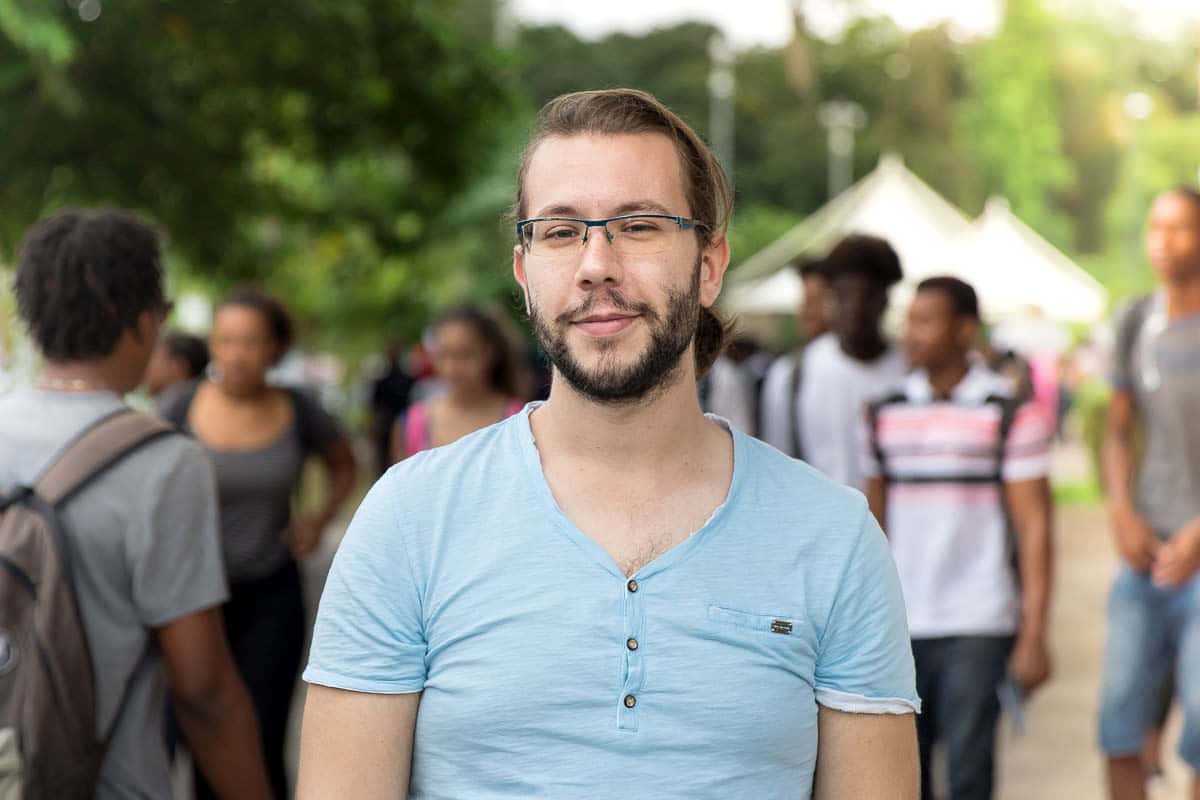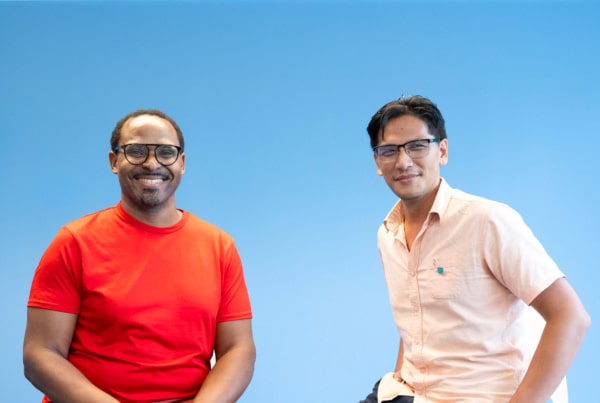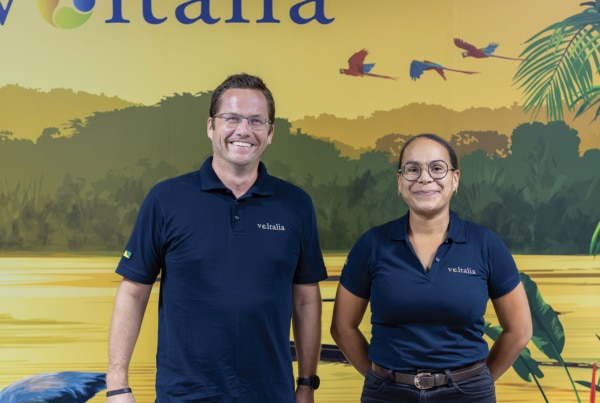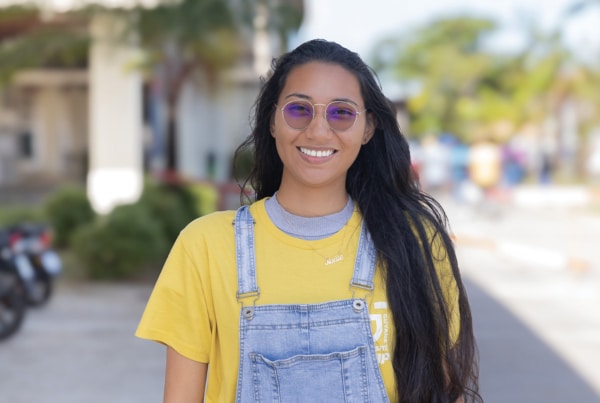
Tristan Baudrit, a second-year literature student, is currently student vice-president at the University of Guyana. He talks about his work and his career as an elected representative. It's a job that's very close to his heart.
Please introduce yourself. What is your background as a student?
My name is Tristan Baudrit, I'm 26 years old and I've been living in French Guiana for over 12 years now. I arrived here at the age of 13 and spent most of my schooling here: secondary school and high school. I even had the opportunity to study at the former UAG (Université des Antilles-Guyane). During my time at university I tried a number of different courses, L.E.A, A.E.S, Law, none of which suited me, until last year when I discovered the Literature course. I'm currently in my second year and I'm really enjoying it. I've finally discovered my voice!
Why did you choose to become Student VP?
The decision to become Student VP came about gradually and naturally. In fact, I was already involved in student community life with my friends from the Lettres association, with whom we set up the outings to Mana. Through this activity, I met the previous student vice-president and I gradually discovered this role. The rest is pretty straightforward: the elections were just around the corner and I was becoming more and more interested in student and community life. So I worked with my fellow students to create our list for the elections to the Academic Council, and we talked about my projects as student vice-president, which they helped me with a great deal and continue to support.
What do you do? What is your role as a student representative?
I have a broad remit, representing all students in all areas of the university. I am authorised to represent and advise them, whatever their department, course of study or level of study.
To this end, I intervene first and foremost in bodies such as the Academic Council, the Board of Governors and the Culture Committee, to make sure that the voices of my fellow students are heard. But beyond this more political side, there's also a more 'grassroots' side, which consists of going directly to meet the administration: the Department of Student Affairs (DSRVE), the Department of Legal Affairs (DAJMPA), the teachers and even the President. These meetings enable us to discuss certain issues in greater depth, so that we can make progress on students' requests and projects. It's a job that can be quite time-consuming and requires a lot of patience. You have to take the time to listen to the students, understand their difficulties, analyse possible solutions and know the right people to talk to. Finally, a large part of our work involves liaising with student associations. We have to support them in their projects, help them set them up and put them in touch with the right people. All these tasks are carried out in collaboration with my fellow student elected representatives.
Do you think that students today are sufficiently committed?
It's something that my friends and I regularly observe: no, students aren't involved enough. We have some wonderful people who give an enormous amount of their time to student and community life, but they are still in the minority. Many students don't get involved and we regularly try to raise their awareness and instil in them a culture of commitment.
What are the qualities needed to be a Student VP?
In my opinion, to be a student VP, you first need to be diplomatic. The job requires a lot of interpersonal skills, listening skills and empathy, so that's fundamental. You also need to be able to withstand pressure and stress, be highly motivated and, above all, have a great deal of imagination and willpower. After all, we are the ones who shape this role in our own image, and each VP has to add his or her own personal touch!
How do you manage your dual role as student VP and undergraduate student?
I can say that in this second year of my degree and halfway through my term as Student VP, I'm much more at ease with my two hats, whether in my relations with the administration or the lecturers, or in my personal work. Last year was much more complicated, because it was all a question of balancing courses and the job. I needed a lot of time to find the perfect balance so that one activity didn't take over the other. It wasn't easy, and at the beginning my school results were affected, but now I'm much more careful about the time I devote to each activity; even if I give priority to my studies, that remains my primary objective.
What does this role bring to your life?
This job has given me a lot in terms of interpersonal skills. I've been able to develop a lot of skills and become more mature, as well as gaining a better understanding of how the university works as a whole. I've learnt a lot by taking part in committees. But above all it enabled me to work in several areas, to be versatile and therefore to have greater flexibility and ease in different administrative areas. I've also enjoyed some great cocktails at the university!
And for the future, do you plan to continue in politics?
As far as the future is concerned, all I know for sure is that I'm going to continue my studies. If I get the chance, I'll get involved for my fellow students, wherever I am, but I don't have any big political plans.
What are your plans for the future?
I've had time to think it through and now that I've found my voice thanks to the Arts degree that I like, I'm going to stick with it. I'd like to go on to do a master's degree in French (MEEF) and go into secondary education. I discovered the teaching profession during a work placement as part of my training, and I have to say that it was a real revelation. I really enjoyed it, so I'm going to summon up all my courage and continue my studies in this direction with the sandwich course!




